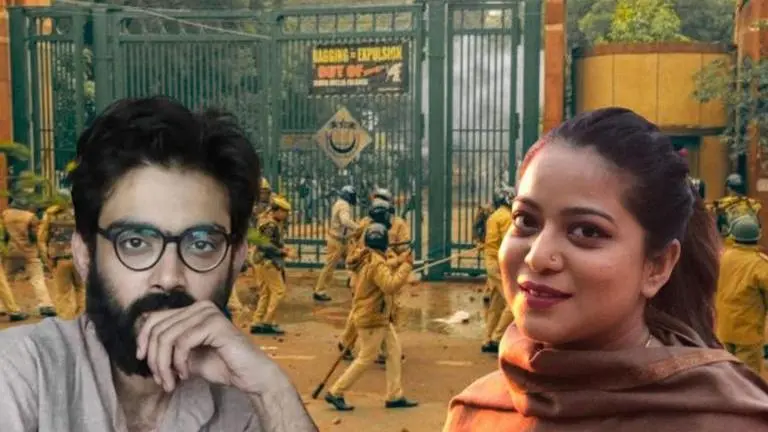Updated 28 March 2023 at 15:20 IST
Delhi HC frames charges on Sharjeel & Co, makes clear violence no smokescreen for protest
The Delhi High Court on Tuesday partially set aside a trial court’s decision to discharge Sharjeel Imam, Safoora Zargar, and nine others.
- India News
- 3 min read

The Delhi High Court on Tuesday partially set aside a trial court’s decision to discharge Sharjeel Imam, Safoora Zargar, and nine others in the Jamia violence case. The court has also framed charges against them under several sections of the Indian Penal Code (IPC). The High Court took cognisance of the matter based on a plea filed by Delhi Police, represented by Rajat Nair, against the decision of a trial court of discharging the accused in the 2019 Jamia violence case.
The court said, prima facie, as seen in the video, the respondents were in the first line of the mob. They were raising slogans of 'Delhi police murdabad' and were violently pushing the barricades, the court added.
Justice Swarana Kanta Sharma, mentioned while pronouncing the verdict, that the right to peaceful assembly is subject to reasonable restrictions and that acts of violence or 'violent speeches' are not protected. The court also highlighted that the list of people accused in the Jamia violence case was in the first line of the mob and was seen raising derogatory slogans against the Delhi Police.
According to reports, Mohd Qasim, Mahmood Anwar, Shahzar Raza Khan, Umar Ahmad, Mohd. Bilal Nadeem, Sharjeel Imam, and Chanda Yadav have been charged by the court under several sections of the IPC including 143,147,149,186, and 427. The accused in the case have also been charged under section 3 of the Prevention of Damage to Public Property Act. Meanwhile, Asif Iqbal Tanha has been discharged by the court under the sections he was booked, but charges for other offences have been invoked.
Advertisement
Court clears violence not a smokescreen for protest
Many courts in the past have chalked out through their judgment that violence in the name of protest is not acceptable.
During the judgment in the Darjeeling violence case in 2018, the Supreme Court cleared that a demonstration held by a group of people that causes public disturbance is not covered under Article 19(1) of the Indian Constitution.
Advertisement
Similarly, while pronouncing the judgment in the CAA riots case in 2019, the apex court remarked, “All we are saying is that violence must stop.”
According to reports, SC said that the court can’t accept indeterminable people assembling whenever they choose to protest while hearing the Shaheen Bagh case in 2020. Similarly, in today’s hearing of the Jamia violence case, the apex court remarked, “Right to peaceful assembly is subject to restriction. Damage to property and peace is not protected.”
What led to the HC’s decision?
According to reports, a trial court on February 4, discharged 11 of the 12 accused in the case. They were Sharjeel Imam, Asif Iqbal Tanha, Safoora Zargar, Mohd. Abuzar, Umair Ahmed, Mohd. Shoaib, Mahmood Anwar, Mohd. Qasim, Mohd. Bilal Nadeem, Shahzar Raza Khan and Chanda Yadav. The court restricted the release of Mohd. Ilyas based on the evidence against him.
Later, the legal counsel of the Delhi Police reached the High Court to challenge the decision of the trial court. The case dates back to 2019 when an incident of violence broke out in Delhi’s Jamia Millia Islamia university. The FIR lodged in the case alleges unlawful assembly and rioting by the university students. Jamia students held a violent protest march against the Citizenship Amendment Act (CAA), brought by the NDA government in December 2019.
Published By : Ronit Singh
Published On: 28 March 2023 at 12:24 IST
